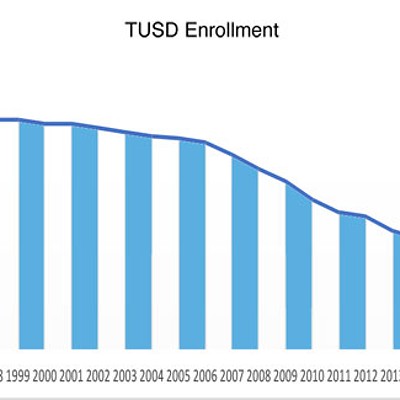As they rush to complete the legislative session and get back out on the campaign trail, state lawmakers are advancing a variety of bills designed to advance a conservative agenda while Republicans still hold a two-thirds majority in both houses of the Legislature.
The Arizona Senate was on the verge of passing a bill to further restrict abortion rights, which have been so curtailed in recent years that abortions—even via medication rather than surgery—are no longer available in Arizona outside of Maricopa and Pima counties.
House Bill 2036 would not allow abortions after 20 weeks, except in case of emergency, and establish new guidelines for what information women must receive before obtaining an abortion—including a state-approved slideshow of fetal development. The bill, which was on the verge of passing the Senate as of press time, will need to return to the House of Representatives, as it is a striker amendment to a bill that originally involved contingency fees for private attorneys.
A second bill involving women's health passed the Senate Rules Committee on Monday, March 26, with a recommendation for a floor amendment. HB 2625, sponsored by Rep. Debbie Lesko, would allow any employer in the state to opt out of providing contraception coverage as part of health insurance if the employer has a moral objection to preventing pregnancy.
State Sen. Frank Antenori, who is running in the April 17 GOP primary in the special election to replace Gabrielle Giffords in Congressional District 8, said last week that he would support HB 2625 if it came up for a vote.
"Do you force someone against their will to provide something that they morally or religiously object to? That is a tough call, and that is what this battle is all about," Antenori said. "Like I told another lady who was upset about it, I said, 'What makes you think you're entitled to have someone else paying for it?' Nobody is stopping you from going out and getting contraceptives. I mean, when I was in high school, I paid for it all the time; I didn't have (any) trouble. It was kind of hard going up to the cash register."
But state Rep. Bruce Wheeler called the bill "insanity" and part of a Republican "war on women."
"It's taking us back 50 years against the advances made for all of us—for women, women's health care, privacy rights, and the right to not have government intrude in our private lives," said Wheeler, a Democrat.
Another bill, HB 2800, would ban any funds from the federal government that pass through the state—such as Medicare funding—to go to Planned Parenthood for cancer screenings, birth control and other health-care related services provided by the nonprofit organization's clinics.
That bill passed the House of Representatives on March 5 and cleared the Senate Healthcare and Medical Liability Reform Committee on March 14. It was awaiting a hearing in the Senate Rules Committee as of press time.
A similar bill recently cost Texas $34 million in federal aid for a program to help low-income women, according to a report in The Wall Street Journal.
In other legislative news:
• SB 1495, which would require anyone who has been laid off to pass a drug test before they could receive unemployment benefits, passed the Senate Appropriations Committee on Thursday, March 22. Critics of the bill warn that it might violate federal law and result in a big tax hike for businesses.
• House Concurrent Resolution 2043, which would ask voters to approve a proposition on the November ballot to require future ballot propositions on the state or local level that increase taxes to pass with 60 percent of the vote, is awaiting a hearing by the Senate Rules Committee.
Antenori said he supports the proposal, which would apply to local bonding and school overrides, as well as tax increases. He said that too many things are loaded into bond packages under the current system.
"By the time you're done (assembling a bond package), instead of getting a road, you've got roads, bike paths, coyote corridors, dog parks, art, (state Rep. Steve) Farley's tiles, all this crap to build a road," Antenori said. "The voters will vote for something if they feel there's a good enough reason to vote for it."
Antenori cited the example of the Vail School District. He voted in favor of an override there for the schools, although he concedes that it would have failed if the 60 percent requirement had been in place.
"They would have had to have done a harder marketing job, I guess," Antenori said.
Wheeler said that the 60 percent margin would result in a minority controlling the outcome of ballot propositions. He pointed out that some proposals that get the support of the business community—such as the Regional Transportation Authority's half-cent sales tax that is funding new roads, more buses and a modern streetcar that will link the university to downtown—would have failed if it had needed the approval of 60 percent of voters.
"The business community and other communities rely on bonding to get things done and build things, and if we're going to have a 60 percent approval mandate, the RTA would have never passed," Wheeler said. "Nothing would ever pass."

















